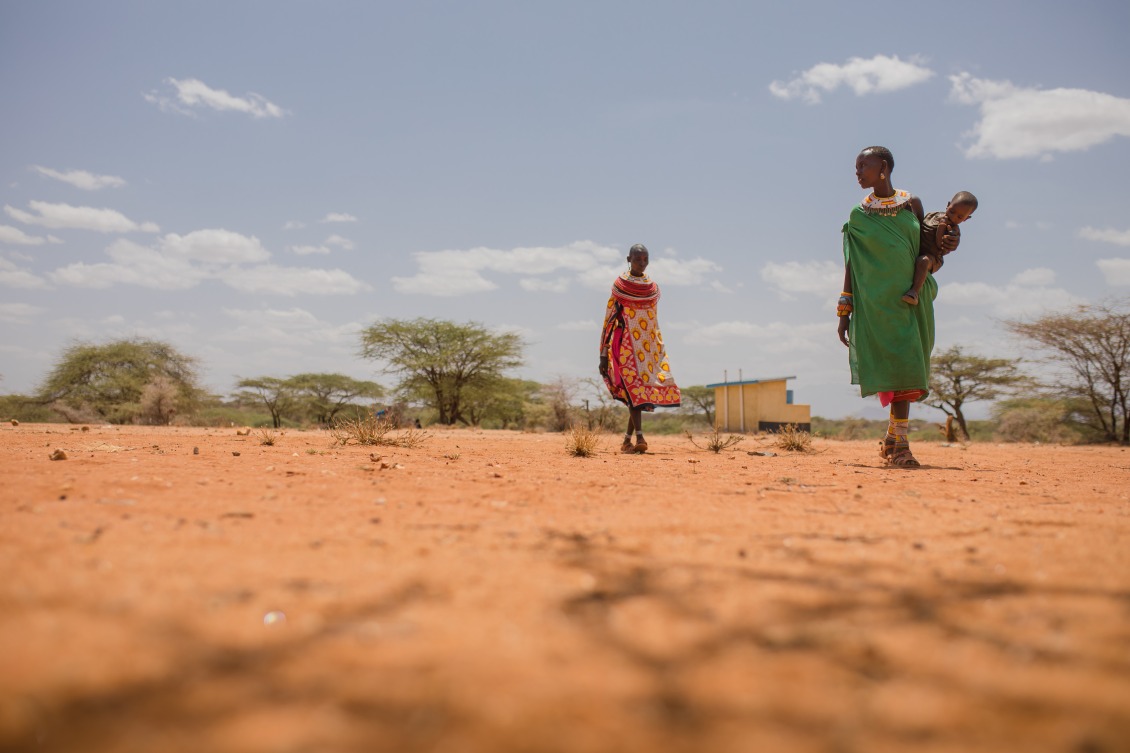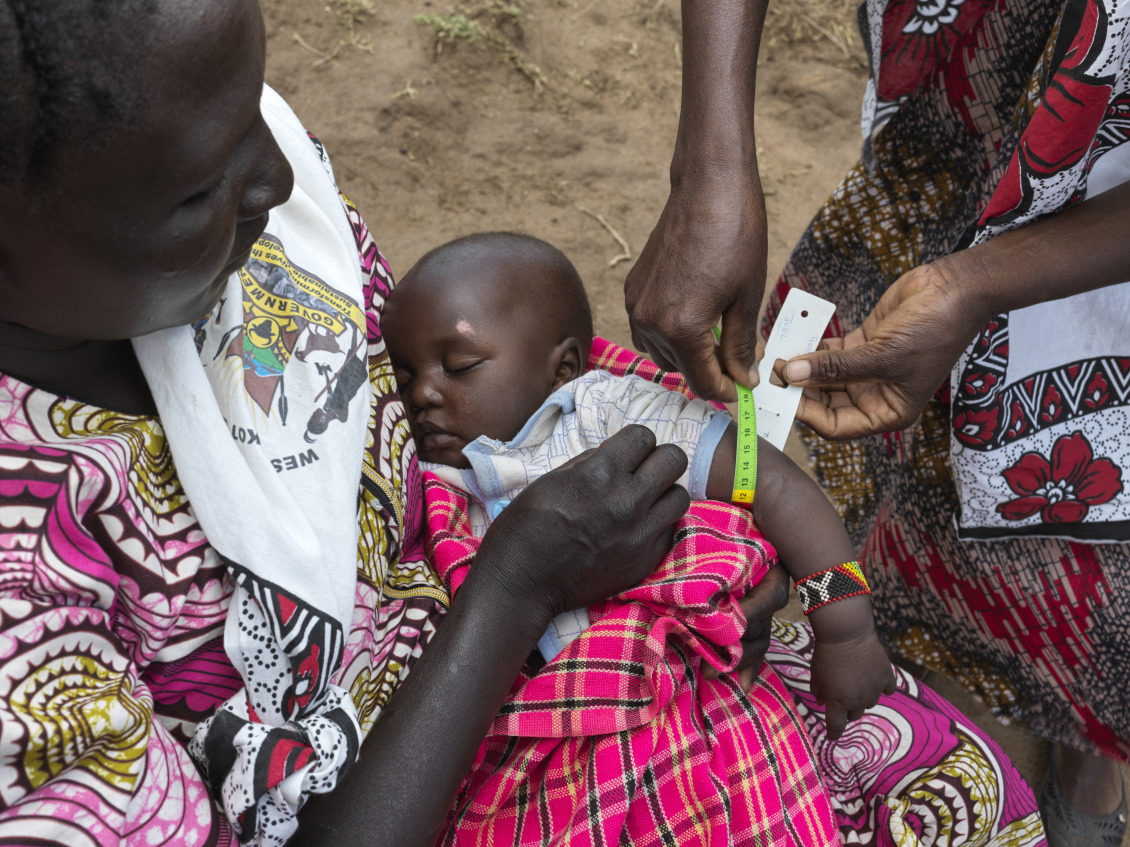
GIVE THIS RAMADAN

Amid the Horn of Africa’s worst drought in 40 years, are women and girls, who are among those impacted most severely by the crisis. They are finding new ways to rely on each other and to tackle life-threatening burdens.
Throughout the drought-affected region, which includes Kenya, Ethiopia, and Somalia, 46 million people desperately need food assistance. More than 16 million people cannot access clean drinking water. Women bear the brunt of these challenges, often facing injustice and discrimination in the hands of male-dominated societies. But Action Against Hunger’s support groups are finally giving women across the region a platform to safely express their fears, concerns, and even hopes.

When water is limited, women and girls face increased dangers to their health and safety. At water sources, the wellbeing of livestock is prioritized above all else, and women often endure attacks as they wait hours for their turn. As the region faces a sixth failed rainy season and rivers and wells dry up, women and girls must make even longer, hotter, and more dangerous journeys in the hopes of coming home with their jerrycans filled. The long distances traveled by women and girls exposes them to sexual exploitation and early pregnancies.
Even as malnutrition rates spike, many schools lack the resources to provide students with ample water or school meals. Many young girls have no choice but to skip class. Poverty, harmful traditional practices, and lack of education have led to an uptick of early marriages and teen pregnancies across Kenya.
Women also face hygiene challenges; many no longer have the money or means to prioritize menstrual health. Others don’t have access to feminine hygiene products at all, let alone guidance on how to deal with menstrual cycles. In male-dominated households with limited means, women rarely have a say in how the family finances are spent.

Even when conditions seem hopeless, women are managing to cope and Action Against Hunger is there to support them. Despite rising mental health concerns, stress levels, disease outbreaks, and food prices, women are finding comfort in each other and sharing strategies to persevere.
Women’s groups—which originally began as mother-to-mother support groups—have evolved in recent months into inclusive spaces where women can seek strength and empower other women in turn. We talked to Jemimah Khamadi, Action Against Hunger’s Program Director in Kenya, to explain the transformation of the support groups and how in some cases, they’ve helped women thrive, not just survive.
Action Against Hunger: How has the drought affected women?
JK: Women and girls are disproportionately facing hardships due to the drought. They have no rights to land ownership, and they have no rights to sell livestock. Many live in very male-dominated, patriarchal communities, and they often face gender-based violence. Attacks can occur even while women desperately search for water for their children. More than ever before, women are dangerously malnourished and traumatized from this ongoing crisis.
Girls are able to attend school less and less, as their communities move constantly to find water, food, and grazing land for their livestock. Their families, desperate for one less mouth to feed, are marrying girls off increasingly early, often to other families who see marriage dowries as ways to replenish the resources they’ve lost in the drought. These teenagers are having children earlier, too. We know that this can perpetuate intergenerational cycles of malnutrition: the younger the mother, the more likely it is her children will be malnourished.

Action Against Hunger: How have Action Against Hunger’s support groups helped women overcome these challenges?
JK: Our teams encourage women to advocate for themselves. Support groups provide an ideal platform to host meetings and discuss women’s rights at household levels. Many of these groups began as mother-to-mother support groups, where women could learn lessons about prenatal care, breastfeeding, and motherhood. But now they’ve expanded to include discussions on a range of other topics, and they’re usually spearheaded by local women.
Action Against Hunger: What is typically discussed in these support groups?
JK: The main aim of the support group is for women to understand their rights at the household level. Oftentimes, that begins with teaching group dynamics and financial literacy. We encourage women to contribute to financial planning and ensure that both men and women can pave their own financial future. We also discuss ways that women can earn money. The groups build a base for women to jumpstart income generating activities and boost their businesses. Women can trade ideas and business skills—from goat-rearing to gardening—and this peer-to-peer sharing is key.
Action Against Hunger: How do women use support groups to confront mental health concerns?
JK: As we speak, millions of women across the continent are overwhelmed with fear. Fear that they won’t find enough food for their children. Fear that their sick two-year-old might have cholera. Fear that they won’t survive the spring. In the midst of crisis, women are relying on each other more and more. Support groups allow women to lean on those who understand their distress and experience the same fears. Whether they talk about motherhood challenges or issues with gender-based violence, they receive support and realize they aren’t alone. Action Against Hunger also provides professional psychosocial support through our Drought Emergency Response Project.

Action Against Hunger: Do men ever participate in support groups?
JK: Men play an essential role in advancing for gender equity in each community, and we often encourage them to join the groups. Internalized misogyny and adherence to predetermined gender roles often make it difficult for men to discuss their mental health concerns or change their family’s traditions, but we’re making progress little by little, day by day.
Action Against Hunger: How have these support groups transformed in just the last few years?
JK: What started out as a place for women to learn about motherhood has now grown and developed into something bigger. Women are even forming their own support groups without Action Against Hunger, and then coming to us for guidance as their group grows. It’s evidence that empowered women empower women, and this ripple effect will continue for months—and hopefully years—to come.
Join our community of supporters passionate about ending world hunger.